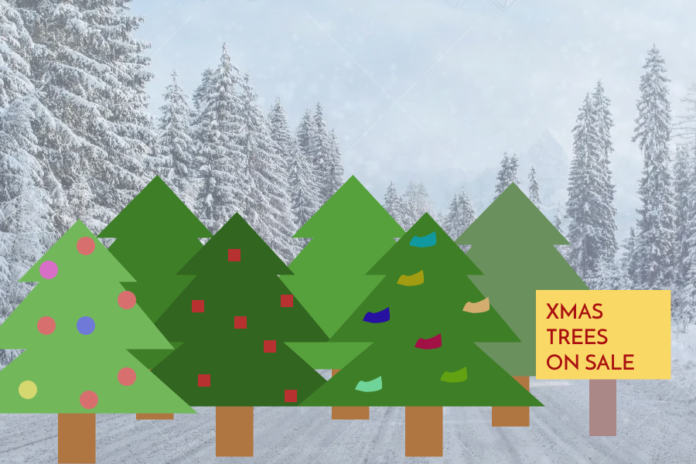The conservation coordinator for the City of Davis and waste zero specialist discuss the best ways to reduce waste with local resources
by ELLIE LEE — elelee@ucdavis.edu
Americans dispose of 25% more trash during Thanksgiving to New Years in comparison to other days in the year, according to Peninsula Sanitary Service, Inc (PSSI). They said that 2.65 billion Christmas cards used in America each year could cover 10 stories of a football field. Additionally, if every family in the U.S. reuses materials to wrap three presents, enough paper would be saved to cover 45,000 football fields.
Jennifer Gilbert, the Conservation Coordinator for the City of Davis, emphasized the importance of sorting waste, discussing data released by California as part of the SB 1383 regulations.
“Twenty percent of the methane emissions from California are coming out of landfills because of organic waste decomposing in the landfill,” Gilbert said. “Organic waste is very easy to recycle here in Davis.”
Gilbert said that a large portion of waste is cardboard and paper, and everyone in the city of Davis has unlimited free recycling opportunities. Taking the extra two seconds to put waste in the bins accordingly creates a big difference. When purchasing holiday products, she said that individuals have a lot of buying power and can affect change based on their purchases.
“Go for the thing that has less packaging,” Gilbert said. “Go for the thing that is recyclable. Packaging waste is a huge portion of our waste stream.”
Gilbert explained why people should avoid the purchase of singing greeting cards.
“They don’t usually continue to go back to that card and continue to enjoy it and yet there is toxic waste included in that battery,” Gilbert said. “The card ends up in the trash or in the recycling bin, leading to environmental contamination.”
She also discussed how taking time to care for oil or grease can help prevent clogs and environmental concerns.
“If it’s a lot of grease or oil, save it in a container, let it cool and then bring it to the Yolo County Central Landfill on a Friday or Saturday during their household hazardous waste events,” Gilbert said. “We really don’t want folks to pour that down the drain.”
She said that it can clog the pipes in the house or even underneath the streets, which can cause backups and concerns. Gilbert said that hot water would not be very useful to flush the lines, as it will cool quickly.
Waste Zero Specialist for Recology Sarah (Benedict) Zuniga added to the conversation on recycling and disposing holiday waste in the city. In the recycling center at 2727 Second St. in Davis, people can sell their bottles and cans for California Refund Value (CRV). She referred to plastic bottles, aluminum cans and some glass bottles, where people can sell them for five or 10 cents CRV during buyback hours.
“Also, we have containers outside of our buyback center in the parking lot, and there are various metal bins that are there to collect various types of recycling,” Zuniga said. “These things can be recycled at all hours.”
Zuniga said that the center has other services, such as motor oil recycling and disposal of hypodermic needles. People would bring in the needles in a sealed rigid plastic or metal container; they would tape it shut at the top and have the word “sharps” written on it. She also talked about waste hauling services for the city.
“People’s trees can be placed in the street, as long as they’re less than five feet,“ Zuniga said. “Another option is they can be cut up and placed directly into the brown-lidded organics cart. The trees must have everything removed from them and must be real trees.”
Those interested for more information can click “Collection Calendar” under the section “Helpful Resources” to find the street pickup day on the Recology Waste Zero Website. Zuniga said the best use of waste materials is to be made into something else. Like Gilbert, she emphasized methane gas being produced in the landfill.
“Not only by composting your holiday trees you get something more value made, such as compost or mulch, but you’re also reducing greenhouse gas emissions,” Zuniga said.
Correction: A previous version of this article misquoted Zuniga as saying “mold” instead of “mulch”. The article has been corrected to reflect the correct quote.
Written by: Ellie Lee — city@theaggie.org




